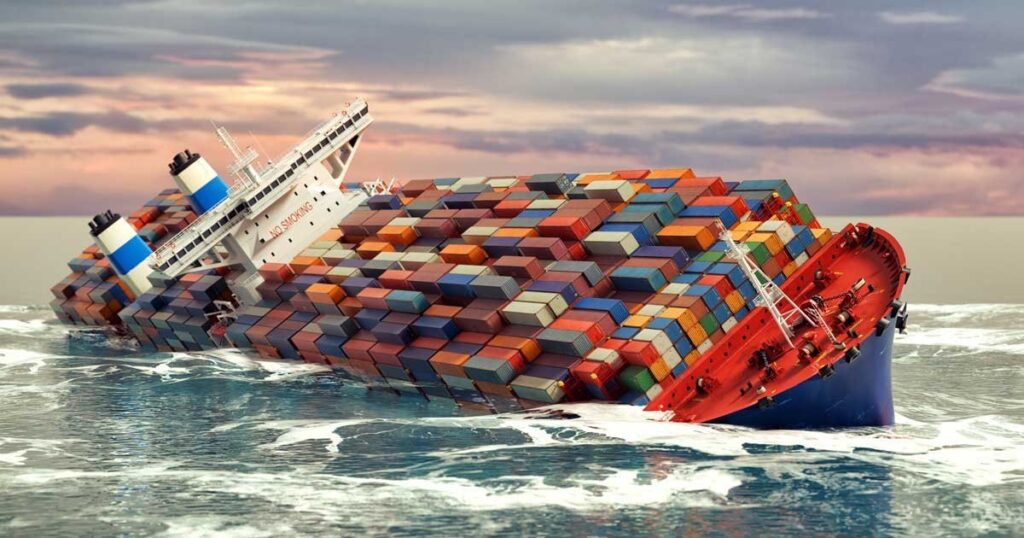Marine insurance is a valuable financial tool that protects your cargo, ship and freight from numerous difficulties and dangers. The marine world is ruled by strong principles and promises, leading to the principles of marine insurance. However, have you heard of marine insurance clauses?
Marine insurance clauses lay down a set of guidelines and foundations for the insurers and insured to function. As the word suggests, clauses are different responsibilities and liabilities assigned to different parties involved in an insurance deal.
If you are planning to buy marine cargo insurance, you need to navigate through these clauses, making it paramount to comprehend their true meaning.
Understand Marine Insurance Clauses
The clauses of a marine insurance policy are specific provisions within the plan. These provisions outline the rules, regulations, terms, conditions and coverage details. These clauses set the record straight to protect all the members associated with the concerned marine cargo or freight insurance.
There are 9 primary clauses of marine insurance policies.
9 Clauses of a Marine Insurance Policy
1. Valuation Clause
The valuation clause in marine insurance presents the predetermined value of the insured cargo or vessel. This works as the sum assured, which signifies the total amount of money the insurance company will pay in case of marine loss.
The insurer and the insured can predetermine this value at the time of policy purchase based on the market value, purchase price or agreed value of the cargo.
2. “At and From” Clause
The “at and from” clause of a marine insurance policy specifies the geographical coverage of locations where the cargo, vessel or freight will travel. It details the location from which the insurance coverage begins and ends.
The policy begins at the locations where the cargo or freight is loaded on the vessel and completes where the cargo is unloaded from the vessel. This defines clear boundaries, enabling the right to claim or the responsibility shift.
3. Warehouse to Warehouse Clause
The “at and from” clause in a marine insurance policy usually refers to the travel made by a vessel or an aircraft. However, with a warehouse-to-warehouse clause, you can extend policy security a little more and make it a transit protection plan.
This extended coverage ensures the protection of the cargo before it is loaded onto the vessel and after it is offloaded from the vessel.
4. Jettison Clause
The jettison clause protects the cargo owner from financial loss incurred due to a specific kind of damage to the cargo. This clause states that the policyholder will receive compensation in case the cargo has to be thrown overboard in order to save a sinking ship or save the vessel from any further loss during a maritime accident.
5. Institute Cargo Clause
The institute cargo clauses A, B and C are majorly differentiated using the risks they cover, exclusions, duration of the policy, claims, the benefit of insurance, loss minimisation, avoiding delay and law and practice.
The institute cargo clause A covers different kinds of risks and is highly inclusive regarding the coverage and inclusion of risks. The risks mentioned as exclusions are the only risks clause A will not cover, i.e., war, nuclear damage and inherent vices.
Clause B, however, covers a limited number of marine perils, like collisions and pirate attacks. Clause C covers even a limited number of specific perils, such as fire, derailment, reaching distressed ports and more.
6. Sue and Labour Clause
The clause that motivates, or rather obligates, the insured to take any necessary step to minimise the loss or damage to the insured cargo is the sue and labour clause of marine insurance policies. Such efforts are compensated by the insurer, ensuring both parties work towards mitigating losses.
7. Accumulation Clause
The accumulation clause in marine insurance protects the insurance company from excessive coverage due to loss or damage endured by the cargo or freight. This clause defines the maximum amount of money the insurer is liable to pay.
8. Change of Voyage Clause
Marine transit is volatile, sometimes leading to deviations in planned routes. In such cases, the change of voyage clause protects the insured in emergency situations. This clause ensures that the loss caused on the deviated locations (without crossing policy-specified boundaries) will be covered by the insurer.
9. Inchmaree Clause
The Inchmaree clause, i.e., the negligence clause of marine insurance policy, covers the hull and machinery against loss and damage caused by negligence of the captain and crew due to wear and tear or inherent flaws.
There are other clauses, like the prompt notice clause, strike exclusion clause, both-to-blame collision clause and the 50-50 clause of marine insurance. Described above are some of the more important clauses.
Summing it Up!
Marine insurance has many intricate factors that need understanding to rightfully complete your job as a trader in the import-export industry. Comprehending these clauses of marine insurance policies helps policyholders navigate their coverage efficiently. Each clause plays a crucial role in defining terms, policy navigation and ensuring comprehensive protection.
Buying marine insurance is paramount, so buy it from a provider with great customer service, like TATA AIG. They help navigate you through these intricacies with ease.


